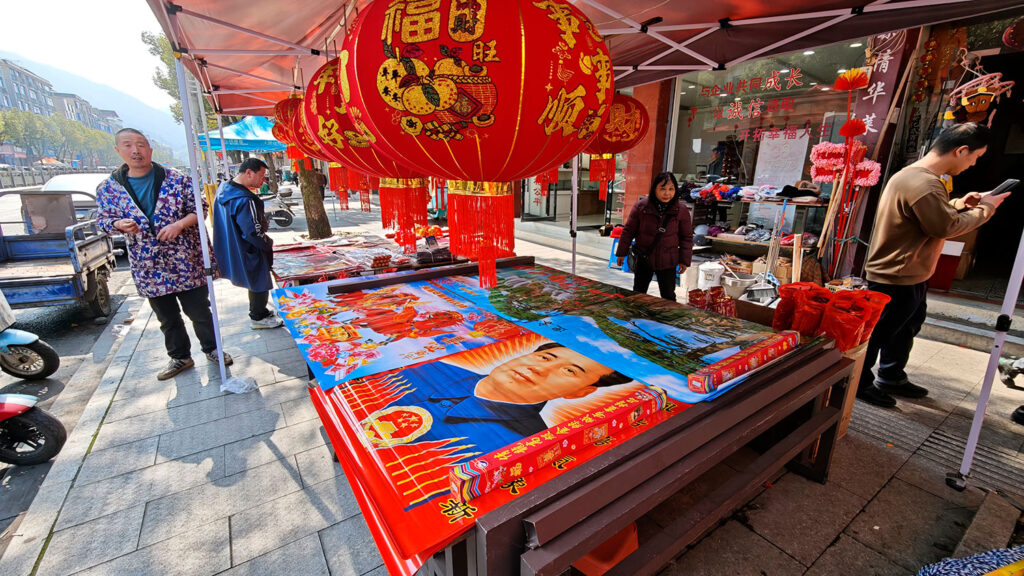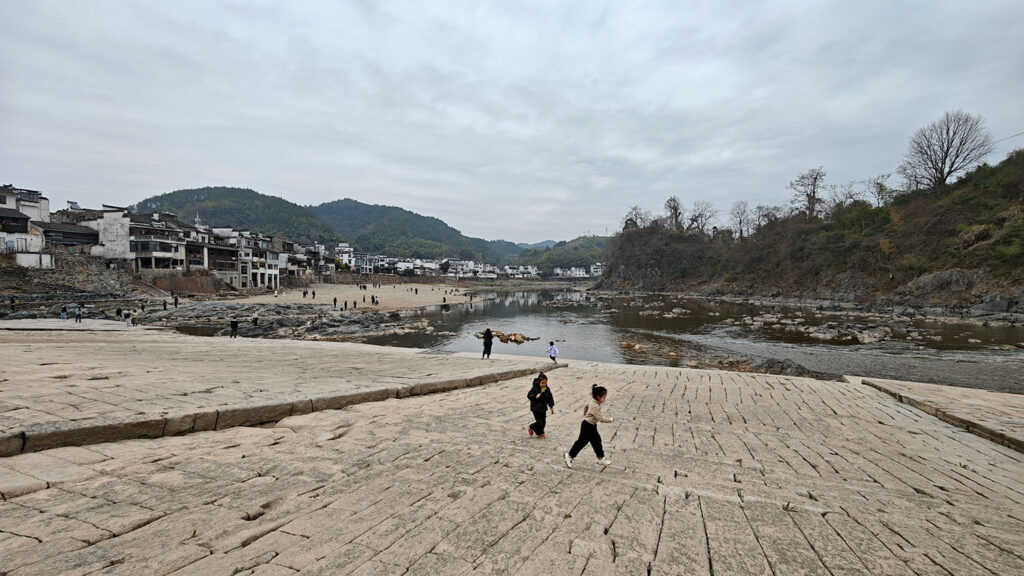In 2017 I decided I wanted to move to China and I started to prepare myself, trying to understand the culture and market. I had nobody to really guide me, so I read books from several categories;
- Online media on how to do marketing in China. Most of these books were kinda nonsense that didn’t go into any depth.
- History books, such as ‘Twilight in the Forbidden City’, or ‘Wild Swans’. As a history lover, these are super enjoyable but I doubt these are very useful to understand younger generations in China today.
- More journalistic books, e.g.’Age of Ambition’ or ‘China’s Millennials’.
- Expats books about friends are a dime in a dozen, e.g. ‘Wish lanterns’, ‘Streets of Eternal Happiness’, and ‘Young China’, a recipe hard to botch but once you read one of them you’ve kinda read them all.
I also start following websites such as Radii, WhatsonWeibo, JingDaily, SixthTone, and SupChina. So I did cram a lot of information, but after four years of actually living in China, I came across stuff I supposedly understood and mostly had either one of two feelings about it:
1: “These viewpoints are extreme, 99% of Chinese people don’t know or don’t care”
Many websites reporting about China follow an easy formula: grab a trending topic on Weibo and show outrage. A brand made a bad joke or decision and seemingly everyone is angry. Grab a few quotes on several sides of the viewpoint, and done! What it doesn’t say is that most people don’t care.
These websites aren’t wrong, but they don’t come with a warning either.
In March 2021, Nike was being supposedly being ‘canceled’ because it expressed concern about Xinjiang cotton. I went to the Nike store and the whole atmosphere was extremely normal. Now even 1½ year later, Nike is as popular as ever, and nobody has ever mentioned this to me. I’m sure at the time some 键盘侠 (keyboard warriors, the word also exists in Chinese) were angry, but are those the ones buying expensive Nike clothes in the first place?

Of course you could say I’m just also a sample size of one and I could be cherry-picking. But I’d advise anyone to take these online outrage reports with a huge grain of salt. Before coming to China I thought Chinese people were so easily outraged by everything, but it’s just the way these websites report. (You always know you hit the jackpot when you see the word ‘netizens’.)
- Knockoff Japanese shopping street in city traumatized by war draws ire
- How a Lost iPad Sparked Furious Online Debate in China
- Sexy Photo Shoot Featuring Feminist Chinese Comedian Sparks Debate
- The Anti “Halalification” Crusade of Chinese Netizens
- Proposed immigration changes spark racist backlash in China
- The Price is Not Right: Corn Controversy Takes over Chinese Social Media
- Chinese internet users are demanding a boycott of Li-Ning for launching a clothing line with a design they say resembles Japanese military uniforms
- Chinese Netizens Express Frustration Over National Day Holiday Schedule
- Furious Chinese Netizens Are Boycotting Lululemon
This is looking at China through a monocular. Even if a Weibo topic gets tens of thousands of comments, that is only an extremely tiny portion of China. Very few topics are widely discussed outside of Weibo.
Sometimes it’s not a hashtag on Weibo that triggers it, but some PR blabla. Insider Intelligence writes that “Sustainability is top of mind for Chinese consumers, especially the younger generation.” This is pure bullshit. People care about the color of their iPhone, how many cameras it has, the price, if the cable is included. But nobody cares about its sustainability. Not in China, not abroad.
The same with this piece from SCMP. If you read this you may think that China hates everything Japanese, which is absolutely not true. Popular Japanese brands in China are Shiseido, SK-II, Uniqlo, Pocky, Calbee, MUJI, Asahi, Yakult, Casio, Asics, Onitsuka Tiger, Mizuno — also Pokémon, Nintendo, Dragonball Z are absolutely adored. (As are many American brands.)

2: “Ok I read about this, it’s similar, but now I understand how it really is”
Websites or books, doesn’t matter. You’ll read about the relationship between children and their parents, bosses and employees, people and their money, and most recently, people and zero covid.
These relationships are changing all the time, maybe some of them faster in China than abroad, but the change is still fairly slow. Journalism works by focusing on change. Let’s take the example of pet ownership. This may be most visible in a rich city like Shanghai (which, btw, is only 3.8% of China’s GDP or 1.7% of its population). People spend a lot of money on pets, especially singles or childless couples. But here are the headlines that are produced:
- 5 Furry KOLs to Know in China’s Booming Pet Economy
- China’s Pet Passion is Leaving its Mark on the Luxury Sector
- Who Will Scratch China’s $66 Billion Pet Pampering Itch?
- China needs its population to have more kids. They’re adding pets instead.
- Chinese Millennials Aren’t Having Babies, Picking Pets Instead
Especially these last ones are total nonsense. The pet industry in China is growing, yes, and it’s a fascinating phenomenon. But that doesn’t mean that for the vast majority of people, pets replace children. Only a tiny percentage of the Chinese population makes enough money to even consider buying Prada-ish stuff for their pets.
But these websites don’t work that way. They pick an extreme customer in Shanghai or Beijing and then combine that with data from the whole country on pet ownership. And even that data has serious errors: Radii says 45.1% of those born between 1995-99 have pets, but the source they linked to specifically mentions singles born between 1995-99.

Another example; it’s very hard to describe what a xiaoqu (小区) is if you’ve never lived in one. The English translation is ‘home community’, and it’s like a residential area with a wall around it. When I was reading about China in books, I imagined ‘living compounds’ as a sort of military base with a huge gate and guards (which, xiaoqu’s often have!). But only after several years of living in China I realized that those ‘living compounds’ that I read about in books are the xiaoqu’s I live in — because the xiaoqu’s of my imagination were so different from the real ones.
On another cringe term is “guanxi”. I used to think this meant rich bosses driving Mercedes, who could buy anything they want. But a friend who is a low-paid kindergarten teacher in Suzhou actually has the biggest guanxi-wang of anyone I know — enormous because each year she has 30 new kids in her class with 60 parents with whom she speaks. Her mind (and WeChat) hold armies of shifus, lawyers, hairdressers, and doctors for all sorts of things — most of whom who will help her if she needs stuff.
And this could be an endless list, but some other examples that are really difficult to feel the nuance on:
- Middle-class Chinese people often cite safety as a reason for buying a SUV, but let their kids and parents go without wearing a seatbelt in the backseat. That doesn’t mean safety isn’t important, but probably the kid needs to take a nap between getting off school and being sent to piano class while mom is driving there.
- There are cameras everywhere in Shanghai, yet scooters jump red lights all the time without consequence.
- If you go to a park, you’ll see many healthy and active Chinese seniors, but there are also plenty of Chinese seniors who sit behind the TV all day, or spend their day swiping Douyin. Many seniors (including the park-going ones) drink & smoke a lot. Think about this when you read about ‘The Rising Potential of China’s New Seniors‘
How to then?
If you are not in China, you will always rely on secondary knowledge. This is maybe less an issue when trying to cover something like the economy or politics, but if you want to understand modern Chinese culture (“daily life”), then that’s a problem. Yet some tips.
Red flags
Watch out for any book or website that freely uses terms like ‘Confucianism’, ‘guanxi’, or ‘filial piety’. These terms are impossible to understand without proper ‘translation’, and what they mean exactly is also changing fast. The same applies to ‘social credit’, ‘China Watcher’, ‘authoritarian’, or when an article starts with ‘the ruling Communist Party’. Close the tab when you see an article mention ‘Orwellian’ or ‘Black mirror’.
Data & examples
When you see data coupled with an example, such as the pet ownership mentioned before, you should wonder how representative that (probably extreme) example is for the described data. Remind yourself that even though Shanghai & Beijing are big cities, they are only a tiny part of China. China is twice the size of the European Union and has over three times the population. You wouldn’t mix data and habits of citizens from Portugal with Finland either.
Avoid snapshots
Books from someone living in China are better than websites reporting on social media hashtags. Some movies paint a true-to-life picture: ‘Einstein and Einstein‘ (狗十三) did do a fantastic job of showing the relationship between a teenager and her parents, and anything you read from Peter Hessler is bound to be more nuanced than some advertising exec with a vested interest on the ‘next new thing’.
Get closer
Get on Twitter and follow non-journalists based in Shanghai. Get a nice mixture of foreigners and Chinese people, and even mix in people who say everything in China is fantastic as well as tweeps who have built their following by complaining about everything (both these sentiments appeal to large audiences). There is also a vast majority in between, who may share stuff about sharing bicycles or complain about VPN’s not working. Twitter is still a very specific lens on China, but at least if you follow the right people it’s a lot closer to life than reading about millennials buying a Louis Vuitton bag for their dog. Also by mixing lots of viewpoints, you can make up your mind yourself. I made a list on Twitter here, but it serves only as an example.
One of my favorite resources for learning Chinese are the walks of Mandarin Corner, and even if you don’t speak Mandarin yourself you can still ‘visit’ China this way. Eileen’s story of her working in a factory is more insightful than most ‘China Watchers’ outside of China.
In a list
Understanding China may be a hopeless task, but to the 28-year-old me in 2017 preparing to move to China, I’d now give this stack:
- Age of Ambition (book)
- River Town (book)
- Wish Lanterns (book)
- Factory Girls (book)
- Einstein and Einstein (movie)
- Dwelling in the Fuchun Mountains (movie)
- Walks in China (YouTube)
- People in China (Twitter)
- The China Project (website)
And of course when the borders open, come to China, and visit more than just the French Concession or Lujiazui in Shanghai. And go with some people who speak Mandarin.



